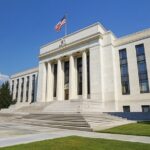Owning a home was once synonymous with financial stability, where a fixed mortgage payment meant predictability even when other expenses fluctuated. However, that assumption is currently crumbling. In 2025, growing numbers of homeowners are falling behind not because they bought beyond their means, but because the hidden costs of ownership are rising fast.
According to Cotality data, serious mortgage delinquencies had been steadily declining for three years until mid-2024. That trend has since reversed, particularly in states like Florida, South Carolina, and Georgia, where homeowners face surging insurance costs and property taxes. In Florida, for instance, escrow payments, which are used to cover these ongoing costs, have risen 62% since 2019.
These increases are being felt hardest by borrowers with government-backed loans like FHA and VA mortgages. Designed to support buyers with modest incomes or smaller down payments, these loans leave less financial wiggle room. Cotality data shows FHA delinquency rates are five times higher than those for conventional loans; VA loans follow closely behind.
“Home prices, homeowners insurance, and property taxes [have surged] across the U.S.,” said Archana Pradhan, an economist at Cotality. Rising post-purchase costs are squeezing household budgets and pushing many toward missed payments.
States with the steepest increases in escrow payments, often due to property taxes and natural disaster-driven insurance hikes, also show higher delinquency rates. Florida saw a jump in serious delinquencies year-over-year, alongside a big spike in property taxes over five years. In South Carolina, 14 insurers exited the market between 2020 and 2023, leading to rising premiums and growing financial strain for homeowners.
More broadly, first-quarter 2025 property tax delinquency rates hit their highest point since 2018. Add to that the fact that more than half the states with the highest delinquency rates also reported unemployment above the national average, and the issue is only further compounded.
Natural disasters are another factor. In Asheville, North Carolina, for example, delinquencies rose 1% year over year after Hurricane Helene. Even a temporary disruption can lead to long-term financial trouble, especially when recovery is followed by a permanent hike in insurance costs.
For many, the cost of staying in their home now feels unpredictable. What was once a fixed monthly payment is being eroded by taxes and insurance increases. For homeowners already close to the edge, that shift could mark the difference between stability and financial distress.
As the notion of stable housing payments is challenged, so does the notion of homeownership as a guaranteed path to lasting wealth drift further away from many aspirants.






